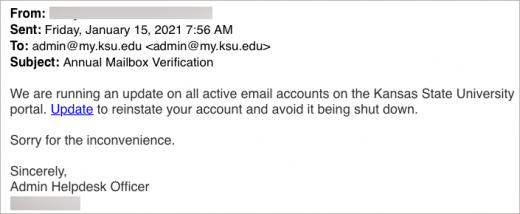Qualtrics is removing the Classic Report feature because of the availability of Advanced Reports. According to Qualtrics, “Advanced reports has a new simplified user experience, better application performance, and increased stability in report generation.”
After March 31, 2021, K-Staters will lose access to any reports which were created using Classic Reports, including scheduled “share” emails and public reports (URLs).
If you have not already done so, Qualtrics Help suggests you rebuild reports on the Advanced Reports platform. Or you can download a copy of the Classic Reports as .qrf and re-upload into the active survey to continue collecting information. [File -> Export to QRF]
If you want a static copy of the report, you can download a PDF copy of any existing reports created using Classic Reports. [Share -> Download PDF]
View Classic Reports in your account:
- From your project/survey, click the Reports tab.
- Select the Reports section.
- Select View Classic Reports.
- Download the report if desired.
Continue reading “Qualtrics removing Classic Reports feature”
 Microsoft Teams L200 training is scheduled 2-3:30 p.m. Monday, Feb. 15. The session will be presented in Microsoft Teams.
Microsoft Teams L200 training is scheduled 2-3:30 p.m. Monday, Feb. 15. The session will be presented in Microsoft Teams. Zoom now has a new “Live Transcription” feature which was enabled on K-State’s account on Jan. 25. Zoom Live Transcripts provides live automatic speech recognition transcripts in real-time for meetings and webinars.
Zoom now has a new “Live Transcription” feature which was enabled on K-State’s account on Jan. 25. Zoom Live Transcripts provides live automatic speech recognition transcripts in real-time for meetings and webinars. On Nov. 12, 2020, Apple released its latest operating system, macOS Big Sur. The Division of Information Technology (IT) has been waiting to release an update of the GlobalProtect (VPN) app that supports Big Sur. An issue has been reported when using chromium-based browsers like Google Chrome. The browser experiences connection reset before proceeding to some sites. IT is working with Palo Alto (GlobalProtect vendor) to resolve this issue.
On Nov. 12, 2020, Apple released its latest operating system, macOS Big Sur. The Division of Information Technology (IT) has been waiting to release an update of the GlobalProtect (VPN) app that supports Big Sur. An issue has been reported when using chromium-based browsers like Google Chrome. The browser experiences connection reset before proceeding to some sites. IT is working with Palo Alto (GlobalProtect vendor) to resolve this issue. 